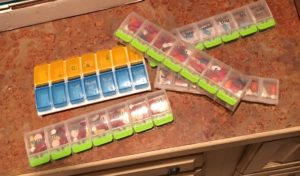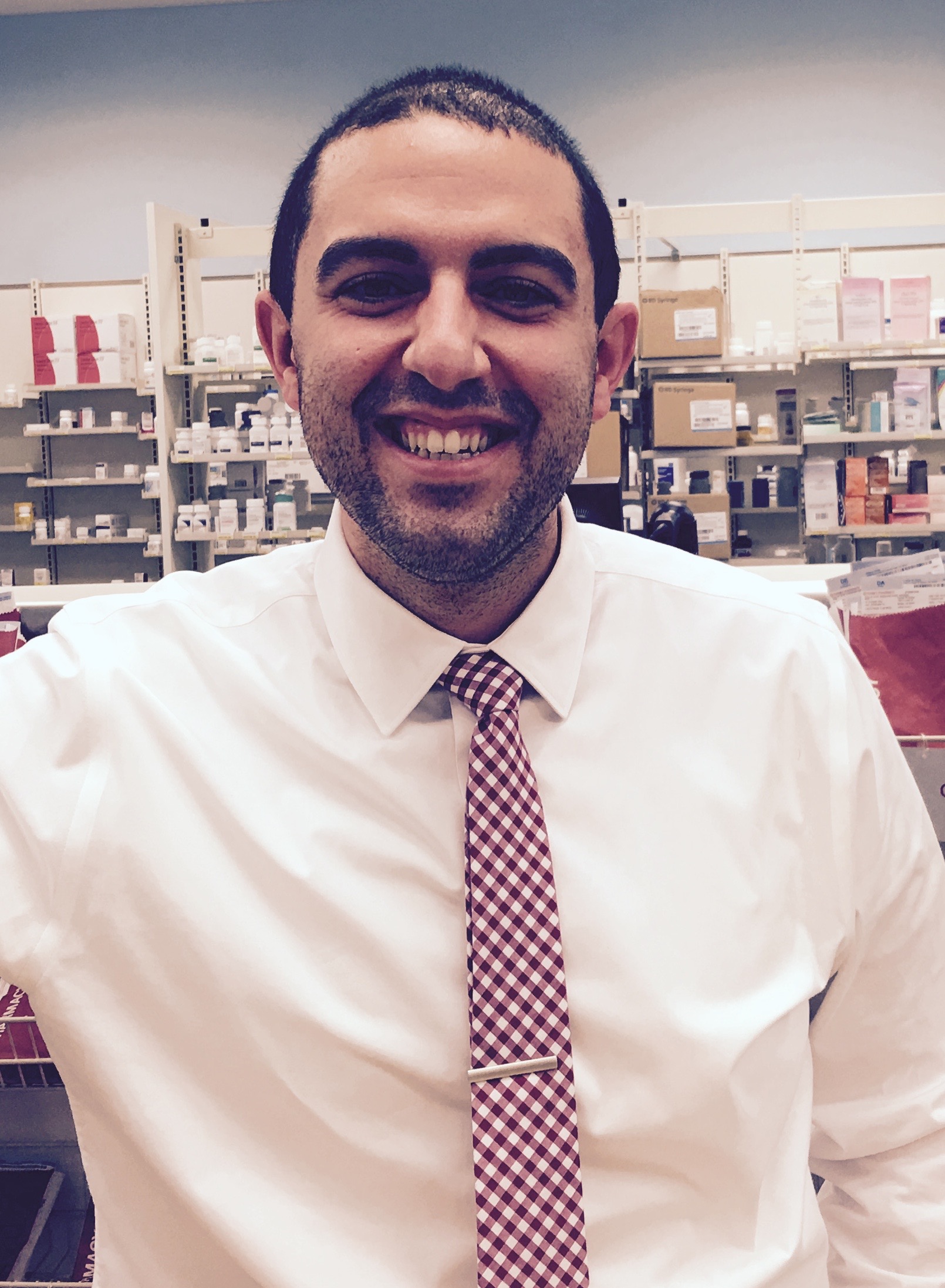What Your Pharmacist Wants You To Know About ADHD Medication

Article continues below...
Treatment for your Child's ADHD
Download a free tip sheet "Recommended Treatment for ADHD: Medication & Behavior Management" for what's really recommended for your child or teen.
A Pharmacy Regular
As the ADHD Mom of 5 kids – 3 of whom also have ADHD – I get to spend a lot of time at my local pharmacy. And I mean A LOT OF TIME. That picture of all the med boxes? That's just one week in our life of vitamins, medications and various other things. So, it makes sense that our family is a little more friendly with our local pharmacy team than the average person.
Now, I know I'm not the only out there who forgets to refill her kids' meds until the last minute. Nor am I the only one whose child suddenly outgrows his dose or has side effects from a new medication. If you're lucky -- like us -- your family's prescription medication needs are handled by a patient and thoughtful team working hard behind the counter. But just in case you're not so fortunate, I thought I'd share some wisdom from our favorite pharmacist, Ali Bishr, PharmD.
Even though Ali and his team are incredibly patient with us, I'm quite sure there are times when he's thinking, "Really? You forgot again?!” And, when that happens, I'm also sure there are things he wishes I (and possibly lots of other people!) knew about how this stimulant medication thing works.
The Top 5 Things My Pharmacist Wants You To Know About Stimulant Medication
1. “Yes, it is a stimulant. When I am counseling a parent on their child's new ADD/ADHD medication, I frequently get a look of surprise when I mention that it is a stimulant. How's a stimulant supposed to calm them down and help them focus? In case your doctor didn't explain it to you, these medications trigger an increase in dopamine in the brain leading to an improvement in alertness and attention. They also increase norepinephrine levels, the main neurotransmitter in the “fight-or-flight” response.”
2. “No, you do not have to take it everyday. Most medications used to treat ADD/ADHD, with the exception of Strattera (which is not a stimulant), have a quick onset of action. They are not something that needs to be taken daily to be effective. In fact, it is not a bad idea to take a break from the medication to prevent building up a tolerance. If you feel like you or your child needs something everyday, talk to your doctor about taking lower doses on the weekends or during breaks from school or work.”
3. “Yes, stimulants can be addictive and have a high abuse potential – for people who do NOT have ADHD. Amphetamines are one of the most common medications used to treat ADD/ADHD. Most stimulants are Class II medications, which is the highest class of legal controlled substances. Using the medications appropriately and as prescribed decreases the potential for abuse and addiction. These medications should be kept in a safe place, out of sight from any house guests. They are highly sought after, especially from high-school and college-aged kids.”
4. “No, we cannot call your doctor for refills. I am sure most of you have called your doctor's office and heard the recording that states, “If you are needing a refill, please contact your pharmacy.” While that is true for most medications, it is not the case with stimulants. Class II medications like stimulants legally cannot be refilled. Additionally, pharmacies typically cannot send refill requests due to legal restrictions and/or software incompatibilities. This may change in the future as more and more state boards of pharmacy legalize the electronic transmission of controlled prescriptions.”
5. “If at first you don't succeed…There are so many choices! Adderall®, Adderall XR®, Ritalin®, Ritalin LA®, Concerta®, Daytrana®, Focalin®, Focalin XR®, Vyvanse®, Metadate CD®, Quillivant XR®, just to name a few. All of these have essentially the same mechanism of action. They differ in dosage form, duration of action, side effect profile, and price. Stimulants are available in tablets, capsules, patches, and liquid. Immediate release products typically last 4 to 6 hours, whereas extended release last up to 12 hours. If you notice any negative side effects from one, work with your doctor to try a different product. Chances are you will find one that works. Brand name products are going to be more expensive than something available as a generic. Your insurance may also require trying a generic product before they will pay for an expensive brand name medication.”
6. “BONUS! Proper Care of your Pharmacist (& Pharmacy team!) – Please be kind to your pharmacist!! We are here to help, but we also have to obey the many laws surrounding the dispensing of controlled substances, and even more laws related to Class II medications. We are not trying to make life difficult for you. If your doctor wrote the wrong date on a prescription or forgot to sign the RX, the DEA will not allow us to make a change or fill the prescription for you. Many times, a patient's insurance company won't cover an early fill or won't pay for the branded medication….this is not your pharmacist's fault!”


